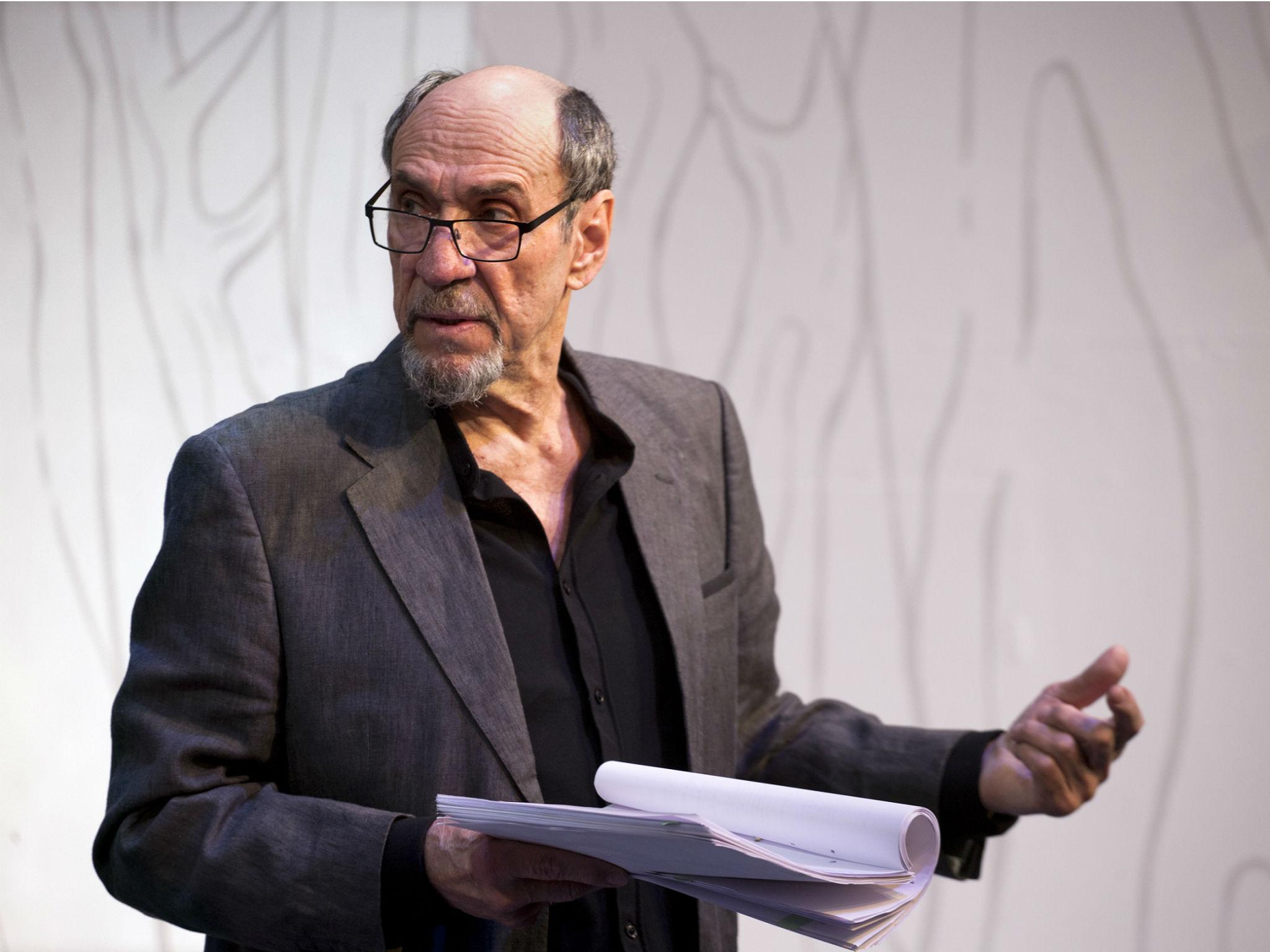The Mentor, Vaudeville Theatre, London, review: The sizeable snag is that the play does not really rise to the occasion
The ‘Homeland’ actor F Murray Abraham has returned to the British stage for the first time since he starred as Shylock for the RSC a decade ago

Your support helps us to tell the story
From reproductive rights to climate change to Big Tech, The Independent is on the ground when the story is developing. Whether it's investigating the financials of Elon Musk's pro-Trump PAC or producing our latest documentary, 'The A Word', which shines a light on the American women fighting for reproductive rights, we know how important it is to parse out the facts from the messaging.
At such a critical moment in US history, we need reporters on the ground. Your donation allows us to keep sending journalists to speak to both sides of the story.
The Independent is trusted by Americans across the entire political spectrum. And unlike many other quality news outlets, we choose not to lock Americans out of our reporting and analysis with paywalls. We believe quality journalism should be available to everyone, paid for by those who can afford it.
Your support makes all the difference.Daniel Kehlman is not a name to conjure with in this country but in his native Germany his novels have apparently knocked JK Rowling and Dan Brown off the top of the bestseller lists. This is the first time a play of his has been seen in the UK. The show comes with impeccable credentials. The production began life at the Ustinov Theatre in Bath, where Laurence Boswell has demonstrated an extraordinary flair for picking up on European talent barely known over here. His pre-eminent discovery is the French dramatist Florian Zeller, whose plays The Father and The Mother transferred to London in versions by Christopher Hampton who provides the spry translation for Kehlman’s piece. The American actor F Murray Abraham – Oscar winner for Salieri in Amadeus and the CIA black ops director in several seasons of Homeland – has been lured back to the British stage for the first time since he starred as Shylock for the RSC a decade ago.
The sizeable snag is that the play does not really rise to the occasion. It’s an amusing but slight 80-minute comedy about the prickliness and fragility of the writerly ego, and about the subjective nature of artistic judgement. It has a light touch but no hidden depths, unlike say Art, the Yasmina Reza piece of which it is occasionally reminiscent. With his guru grey goatee and air of weary grandeur, Abraham finds a lot of mischievous fun in the role of Benjamin Rubin, an illustrious has-been whose career has failed to live up to the one great play he wrote at the age of 24. A wealthy arts foundation has agreed to pay him €10,000 to spend five days at a swish Italian retreat mentoring the young dramatist Martin Wegner (Daniel Weyman) who was hailed as the “voice of his generation” for his first play (which involved 35 extras and a cement mixer).
Wegner brings a draft of his next effort, helpfully entitled Without A Title, for the celebrated author’s scrutiny. Rubin makes a great meal of judicially polishing his specs and riffling through the pages before asking “What kind of font is this?” and pointing out “an obviously misplaced apostrophe” as if avoiding typos were the main index of creative ability. When pressed for a verdict, he pronounces the play worthless: “Tell me, do you absolutely have to be a writer?” Is this an old man’s jealousy of rising talent? A generational blindness to its merits? A perceptive assessment or a ploy to test the mettle of the younger man? There is deliberate uncertainty but you wish this were handled with greater subtlety.
Boswell’s production is well paced and sparkily performed but it can’t disguise the fact that everything in the piece is signalled too broadly. The play is happier dispensing the funny but obvious gags about Rubin’s diva demands and his tetchy dismay that they were not exactly overrun with applicants for his mentoring services than it is in giving us any plausible detail about the pair’s differences in authorial taste. “If you say it quickly it might work for a moment,” cries the GOM after disdainfully quoting a line he finds pretentious. The pair’s literary disputes are too vague and crudely satirised.
Weyman charts in a sort of vivid emotional slapstick the younger man’s collapse from bumptiousness to bundle of frantic neuroses. He storms off and leaves his wife Gina (coolly played by Naomi Frederick) alone with Rubin. She’s sick of being the breadwinner and childless and can’t give her spouse the confirmation about his great potential that he thinks is his due. All the same, and even though it is left ambiguous, I do not think that she would be drawn to his rival’s charms, especially when Rubin’s chat-up lines are so clotted and pseudo-philosophical (birds “have nothing to say but that they exist!”) that she’s obliged to remark that they sound good but don’t make any sense.
I enjoyed the secondary things most – like Jonathan Cullen’s delicious turn as the camp, flustered and frustrated arts administrator who is a painter himself (all his “moods” are on his mobile) and who eventually rebels against sucking up to other artists for a living. In general, though, a disappointment.
Join our commenting forum
Join thought-provoking conversations, follow other Independent readers and see their replies
Comments